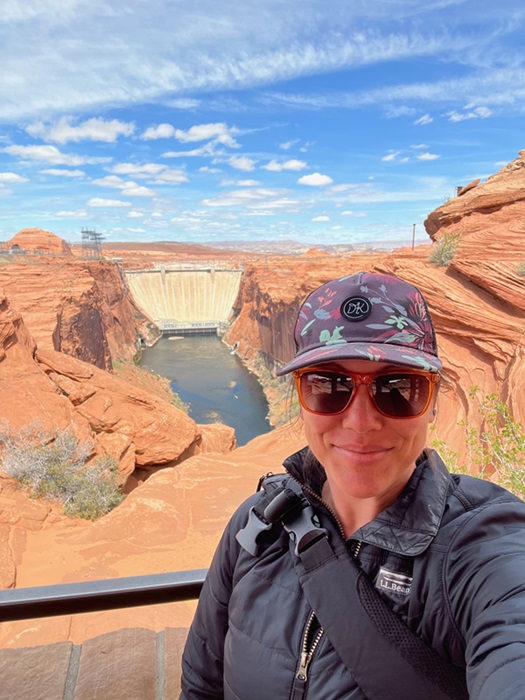
Hello, my name is Emily Hite, and I’m an Assistant Professor of Anthropology at Saint Louis University. I am thrilled to now serve as the blog editor for EnviroSociety.
My research focuses on understanding how human-water relationships are shaped and challenged by climate governance, with particular attention to the justice and equity of decision-making processes related to hydropower across local-to-global scales. My work spans from ethnographic research at international climate meetings, where global policies are shaped, to collaborating with Indigenous communities in Costa Rica, where these projects are implemented. Recently, I’ve expanded my work to the United States, particularly focusing on the human-water-climate nexus in the Colorado and Mississippi River basins. I am a board member of Save the World’s Rivers and a Primary Investigator at the Saint Louis University Water Institute.
In 2021, I helped establish the Climate Change Interest Group (CCIG) within the American Anthropological Association (AAA). CCIG emphasizes the essential role of anthropologists in understanding and addressing the human dimensions of climate change. By building on the legacy of the AAA’s Climate Change Task Force, CCIG continues to push for the integration of anthropological insights into global climate governance and policy. Through this work, we have helped ensure anthropologists’ participation in major international climate events, such as the United Nations Framework Convention on Climate Change (UNFCCC) COP meetings. The group works to highlight how human societies are impacted by and engage with environmental changes, particularly through the social, political, and cultural dynamics at play. CCIG’s ongoing efforts amplify the voices of those impacted by climate change and promote discussions rooted in human experiences.
I’m excited to now take on the role of editor for the EnviroSociety blog and contribute to this important platform. The blog serves as a vital space for discussions around environmental anthropology, climate change, and the broader human and other-than-human dimensions of the environment. Moving forward, we’ll be featuring themed sections, with a strong focus on climate change, while remaining open to contributions on other critical environmental and societal issues. Essays will cover a wide range of topics, including, but are not limited to, biodiversity concerns, the food-energy nexus, health and the environment, and natural resources. This is an exciting opportunity to broaden the conversation and explore a wide range of topics that impact our understanding of the intersections between environments and societies.
We are now soliciting essays from scholars, including students, junior and senior faculty, as well as practicing anthropologists. Contributions should aim to deepen our collective understanding of human-environmental experiences. We encourage submissions that bring fresh perspectives on the intersections of society and the environment, investigate new technologies, assess governance influences and impacts, among others. We are eager to showcase the important work being done in this field.
We look forward to sharing your insights on EnviroSociety.
If you are interested in contributing an essay or have inquiries about the blog, please reach out to us at envirosociety@berghahnjournals.com for more information.
Directions on how to submit:
We ask that submissions are 1000-2000 words, sent in a word doc, include an image (at least) with author/photographer permission (or copyright free with attribution), and 3-5 key words.